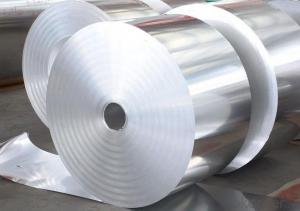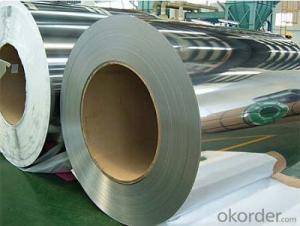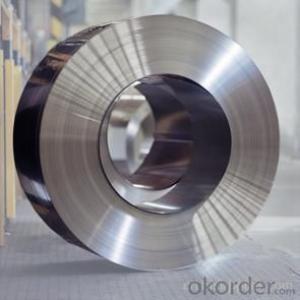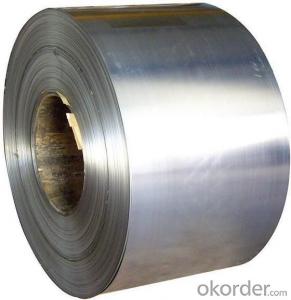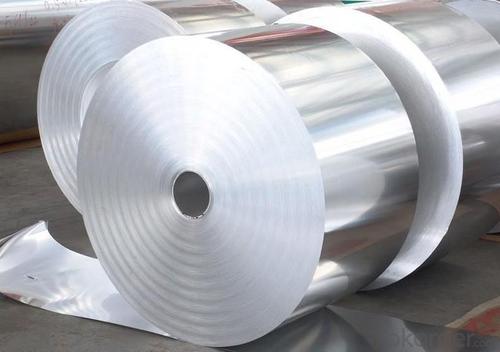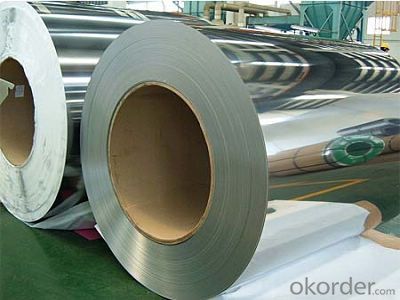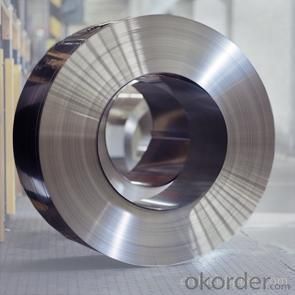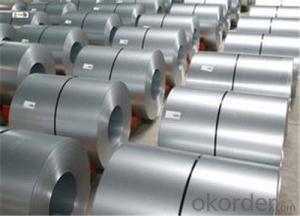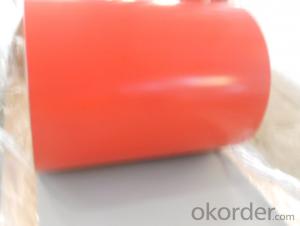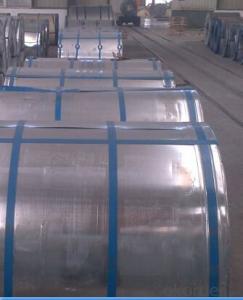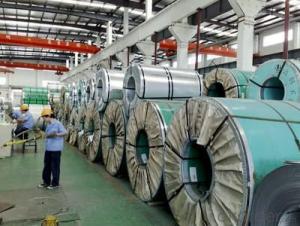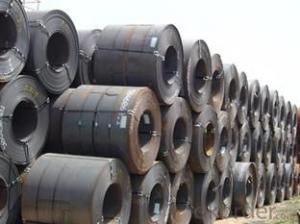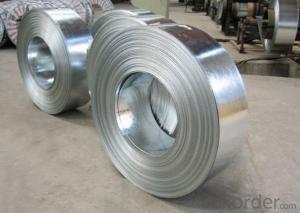304 Stainless Steel Coil
- Loading Port:
- Shanghai
- Payment Terms:
- TT OR LC
- Min Order Qty:
- 1 m.t.
- Supply Capability:
- 3000 m.t./month
OKorder Service Pledge
OKorder Financial Service
You Might Also Like
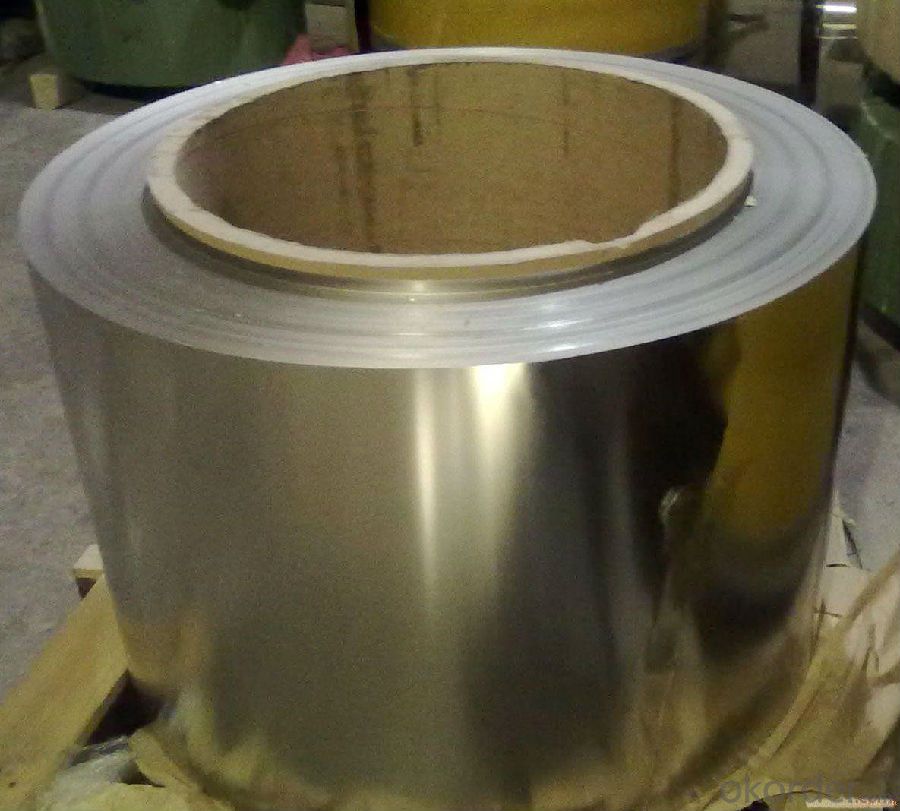 1、Describtion:
1、Describtion:
304 stainless steel is a kind of universal stainless steel material, anti rust properties than the 200 series of stainless steel material. Heat resistance is also relatively good, the general use of the temperature limit is less than 650. 304 stainless steel has good stainless steel,corrosion resistance and better intergranular corrosion resistance.304 stainless steel is a common stainless steel material, density of 7.93 g/cm3, the industry is also called 18/8 stainless steel. High temperature 800 degrees, with good working performance, toughness, and widely used in industrial and furniture decoration industry and food medical industry.
2、Specification (mm):
The ultimate tensile strength of B (MPa) = 520
304 stainless steel Atlas (7)
Conditional yield strength (MPa = 205) 0.2
5 elongation (%) = 40
Section shrinkage (%) = 60 PSI
Hardness: = 187HB; 90HRB = 200HV;
Density (20, g/cm3): 7.93
Melting point (c): 1398~1454
The specific heat (C 0~100, KJ, kg-1K-1): 0.50
Thermal conductivity (m-1 - K-1 - W): (100) 21.5 (500)
Linear expansion coefficient (K-1 - 10-6): (0~100) 17.2, (0~500 18.4)
Resistivity (20, 10-6, m): 0.73
Longitudinal modulus of elasticity (20, KN/mm2): 193
3、Price:
¥ 14.72 -- ¥ 18.52/ton
4、Product characteristic:
304 stainless steel is a kind of universal, it widely used for requirements of making good comprehensive properties, resistance to corrosion and formability of equipment and parts. In order to keep the stainless steel corrosion resistance, the steel must contain more than 18% of the chromium, more than 8% of nickel content. 304 stainless steel is produced according to the United States ASTM standard a grade of stainless steel.
Suitable for food processing, storage and transportation. Has good machining performance and can be welded. Plate heat exchanger, corrugated pipe, household products, medical appliances, building materials, chemical, food industry, agriculture, marine parts and so on.
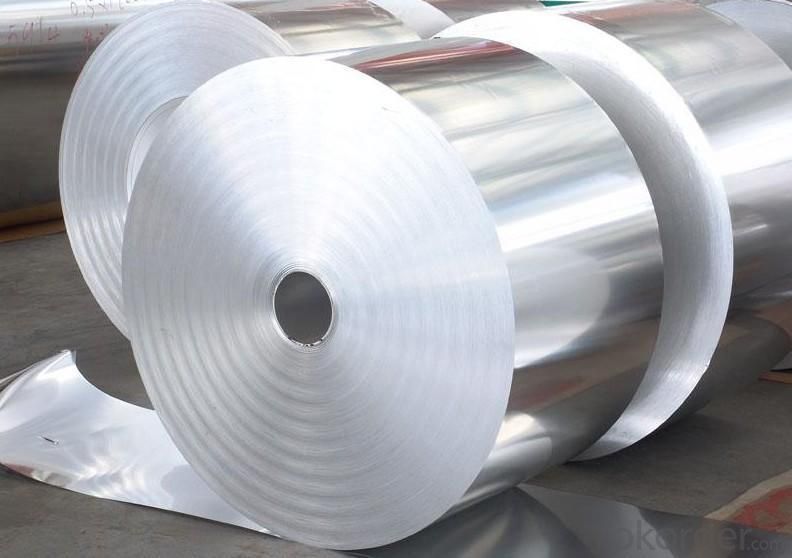
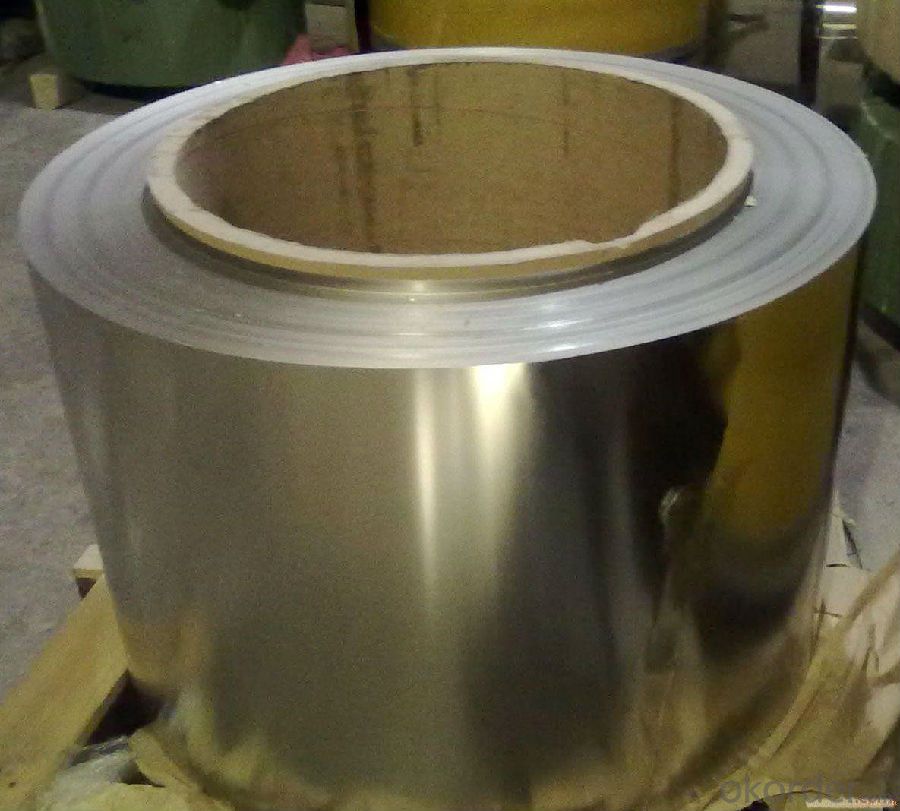
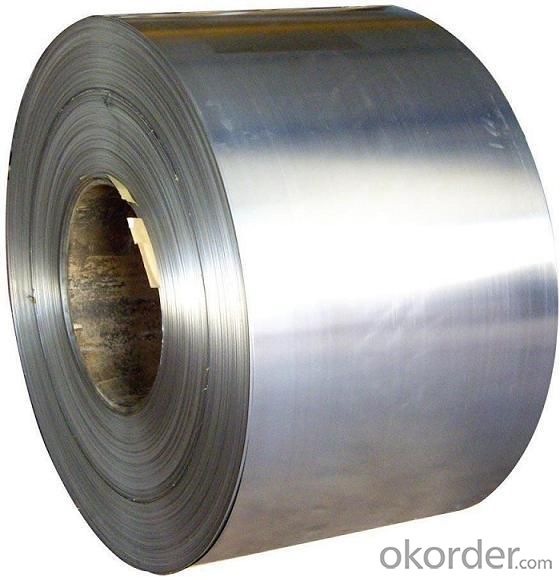
- Q: I'm writing a story, and trying to find out how hot it needs to be for steel to turn into a gas.
- Steel is to broad. There are many types of steel with different melting/boiling points. Iron* has a boiling point of 5182 °F and a Heat of vaporization of 340 kJ·mol?1. iron is the main ingredient of steel, along with carbon and other various elements.
- Q: How are steel coils used in the manufacturing of automotive bodies?
- Steel coils are used in the manufacturing of automotive bodies as the primary material for forming various structural components, such as body panels, frames, and reinforcements. These coils are typically fed into stamping presses, where they are shaped and cut into the desired shapes and sizes. The strength and durability of steel make it an ideal choice for automotive bodies, providing a solid foundation for safety and structural integrity.
- Q: I know aluminum is lighter but I'm looking at a 01 bianchi grizzly mountain bike which is steel. I used to ride a specialized stumpjumper m4 which was aluminum. It was quite light so I don't know if I'll like a bit heavier bike but overall what is better from those who have had both?
- Depending on the price, aluminum may be as heavy or heavier than steel... don't let anyone tell you otherwise. Keep in mind that with age aluminum will eventually break from stress while steel will never fail due solely to riding stresses. In all, it is up to you. I ride steel or magnesium road bikes and aluminum or magnesium MTBs.
- Q: what are the properties that can strengthen the steel to withstand earhquake?
- Earth quakes are due to the result of the earth underneath moving. The earth has so many layers of earths called plates placed one over the other for so many millions of years. When these plates move because of stress and strain on the crust of the earth then the structures built over them collapses. So it need not to be steel or concrete which can withstand these stress and strains. Actually strength is not going to help. In Japan originally they built buildings with wood and made them light so that when earth quake strikes the impact is very less. A building has to withstand the shocks by having a spring action and should be spreading out the stress away from the building and act as a shock absorber.
- Q: I have a knife with AUS8 Stainless Steel. No idea what that means. I want to know some of the best stainless steels for knifes and all you can tell me about stainless steel would be great. I was browsing google and looking at grades and had no idea what all the numbers meant. Thanks!
- Ok so listen she already likes me what should I say
- Q: How are defects in steel coils detected and resolved?
- Defects in steel coils are typically detected through various non-destructive testing methods such as visual inspection, ultrasonic testing, magnetic particle testing, and eddy current testing. Once a defect is identified, it is resolved through processes like grinding, polishing, welding, or cutting out and replacing the affected area. The specific resolution method depends on the type and severity of the defect, ensuring that the steel coils meet the required quality standards before further processing or usage.
- Q: I was wondering what kind of company casts and sells steel without acting as a contractor as well. They only sell steel no install it
- If you are talking about raw steel materials and products I believe you are talking about a steel processor and warehouse company or a steel distributor. There are many different points along the steel manufacturing process that you could buy steel products. It would depend on various factors. Depending the amount, type, grade, gauge, properties, origin and a host of other elements you could purchase the steel in billet, plate, diamond plate, rolled sheet (cold or hot), coil, beam, stamped, pickled, scrapped, etc. You get the idea. Now I don't know where you are in the world, but you can go to one of the two sites below, which I have used for product sourcing and research before. The last one is a major manufacturer that I have actually been to. I hope this helps.
- Q: How do steel coils contribute to the construction machinery industry?
- Steel coils are essential components in the construction machinery industry as they are used for manufacturing various equipment such as cranes, excavators, bulldozers, and loaders. These coils serve as raw materials for fabricating structural parts, chassis, frames, and hydraulic systems, providing the necessary strength, durability, and stability required for heavy-duty construction machinery. Additionally, steel coils are used in the production of attachments like buckets, blades, and booms, enhancing the functionality and versatility of construction equipment. Overall, steel coils play a crucial role in advancing the construction machinery industry by ensuring the robustness and performance of the equipment.
- Q: What is the role of steel coils in the production of conveyors?
- The role of steel coils in the production of conveyors is to provide structural support and strength to the conveyor system. Steel coils are used to create the framework and components of the conveyor, ensuring durability and reliability in moving heavy loads. They are the backbone of the conveyor, allowing it to handle various materials and withstand the stresses of continuous operation.
- Q: earlier name of jsw steel ltd. may be jindal iron steel ltd.
- JSW Steel Ltd - Profile Office Address 5 A, Jindal Mansion, Dr A G Deshmukh Marg, Mumbai Maharastra 400026 Phone 022-23513000 Business Summary JSW Steel Limited Formerly known as Jindal Vijayanagar Steel Limited. The Company's principal activity is to manufacture hot rolled steel coils in India using the revolutionary Corex technology. In addition, the Company also manufactures steel plates and sheets. It manufactures steel using oxygen based iron and steel through continuous casting and hot rolling. Executive Team Executive Name Designation Savitri Devi Jindal Sajjan Jindal Dr. B N Singh Chairperson Additional Director Vice Chairman Managing Director Joint Managing Director
Send your message to us
304 Stainless Steel Coil
- Loading Port:
- Shanghai
- Payment Terms:
- TT OR LC
- Min Order Qty:
- 1 m.t.
- Supply Capability:
- 3000 m.t./month
OKorder Service Pledge
OKorder Financial Service
Similar products
Hot products
Hot Searches
Related keywords
